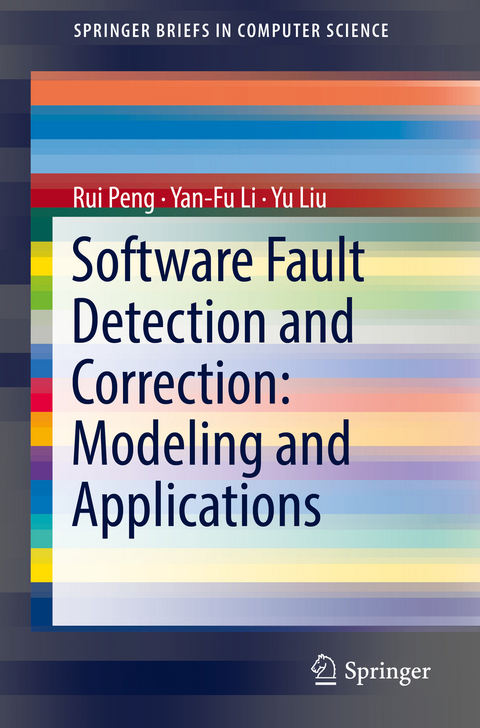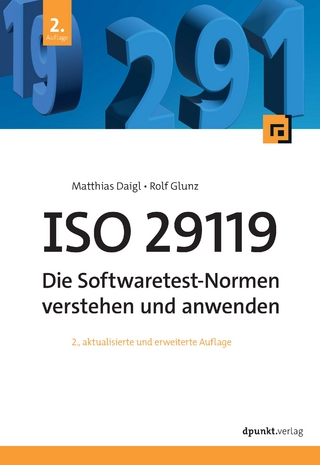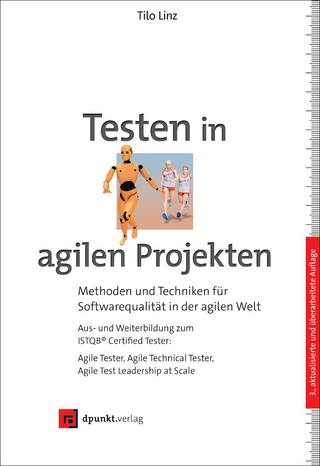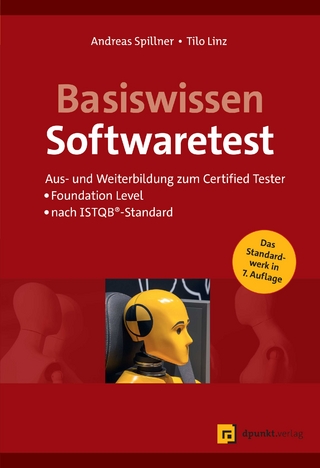
Software Fault Detection and Correction: Modeling and Applications
Springer Verlag, Singapore
978-981-13-1161-1 (ISBN)
The first work incorporates the testing effort function and the fault introduction process into the paired fault detection and fault correction models. The second work incorporates fault dependency, while the third adopts a Markov approach for studying fault detection and correction processes. The fourth work considers the multi-release property of various software, and models fault detection and correction processes. The last work classifies faults into four types and models the fault-detection and correction processes.
Enabling readers to familiarize themselves with how software reliability can be modeled when different factors need to be considered, and how the approaches can be used to analyze other systems, the book is important referenceguide for researchers in the field of software reliability engineering and practitioners working on software projects. To gain the most from the book, readers should have a firm grasp of the fundamentals of the stochastic process.
Rui PENG is currently an Associate Professor at Donlinks School of Economics & Management, University of Science & Technology Beijing. He obtained his bachelor’s degree from Special Class of Gifted Young, University of Science & Technology of China in 2007. He obtained his Ph. D degree from the Industrial & Systems Engineering Department, National University of Singapore in 2011. After that, he joined Donlinks School of Economics and Management, University of Science & Technology Beijing, and was promoted to Associate Professor in 2014. He has published about 50 papers in respected journals such as Reliability Engineering and System Safety, IEEE Transactions on Reliability, and IISE Transactions. He is an IEEE senior member and on the editorial board of Reliability Engineering and System Safety. Yanfu LI is currently a Professor at the Industrial and System Engineering Department, Tsinghua University. He obtained his bachelor’s degree from Wuhan University in 2005, and Ph. D degree from the Industrial & Systems Engineering Department, National University of Singapore in 2009. After that, he completed his post-doctoral studies at the Department of Industrial&Information Engineering, University of Tennessee Knoxville, USA from Nov 2009 to Oct 2010. From 2011 to 2016, he worked at the Laboratory of Industrial Engineering CentraleSupélec, Paris, France. He joined the Industrial and System Engineering Department, Tsinghua University in Sep 2016. He has published about 50 papers in respected journals such as Reliability Engineering and System Safety, IEEE Transactions on Reliability, and IEEE Transactions on Power Systems. He is an IEEE senior member and an associate editor of IEEE Transactions on Reliability. Yu LIU obtained his bachelor’s degree in Electrical Engineering at Tsinghua University in 2012, and master’s degree in Nuclear Science and Technology at the same university in 2014. Heobtained his Ph. D degree from the Department of System Engineering and Engineering Management, City University of Hong Kong in 2017.
Chapter 1. Introduction.- Chapter 2. Classification of Models.- Chapter 3. TEF Dependent Software FDP and FCP Models.- Chapter 4. Software Reliability Models Considering Fault Dependency.- Chapter 5. General Order Statistics-Based Model.- Chapter 6. Reliability of Multi-release Open-Source Software.- Chapter 7. FDP and FCP with Four Types of Faults.
| Erscheinungsdatum | 19.11.2018 |
|---|---|
| Reihe/Serie | SpringerBriefs in Computer Science |
| Zusatzinfo | 12 Illustrations, color; 18 Illustrations, black and white; XIII, 108 p. 30 illus., 12 illus. in color. |
| Verlagsort | Singapore |
| Sprache | englisch |
| Maße | 155 x 235 mm |
| Themenwelt | Informatik ► Software Entwicklung ► Qualität / Testen |
| Mathematik / Informatik ► Informatik ► Theorie / Studium | |
| Technik ► Maschinenbau | |
| ISBN-10 | 981-13-1161-7 / 9811311617 |
| ISBN-13 | 978-981-13-1161-1 / 9789811311611 |
| Zustand | Neuware |
| Haben Sie eine Frage zum Produkt? |
aus dem Bereich


